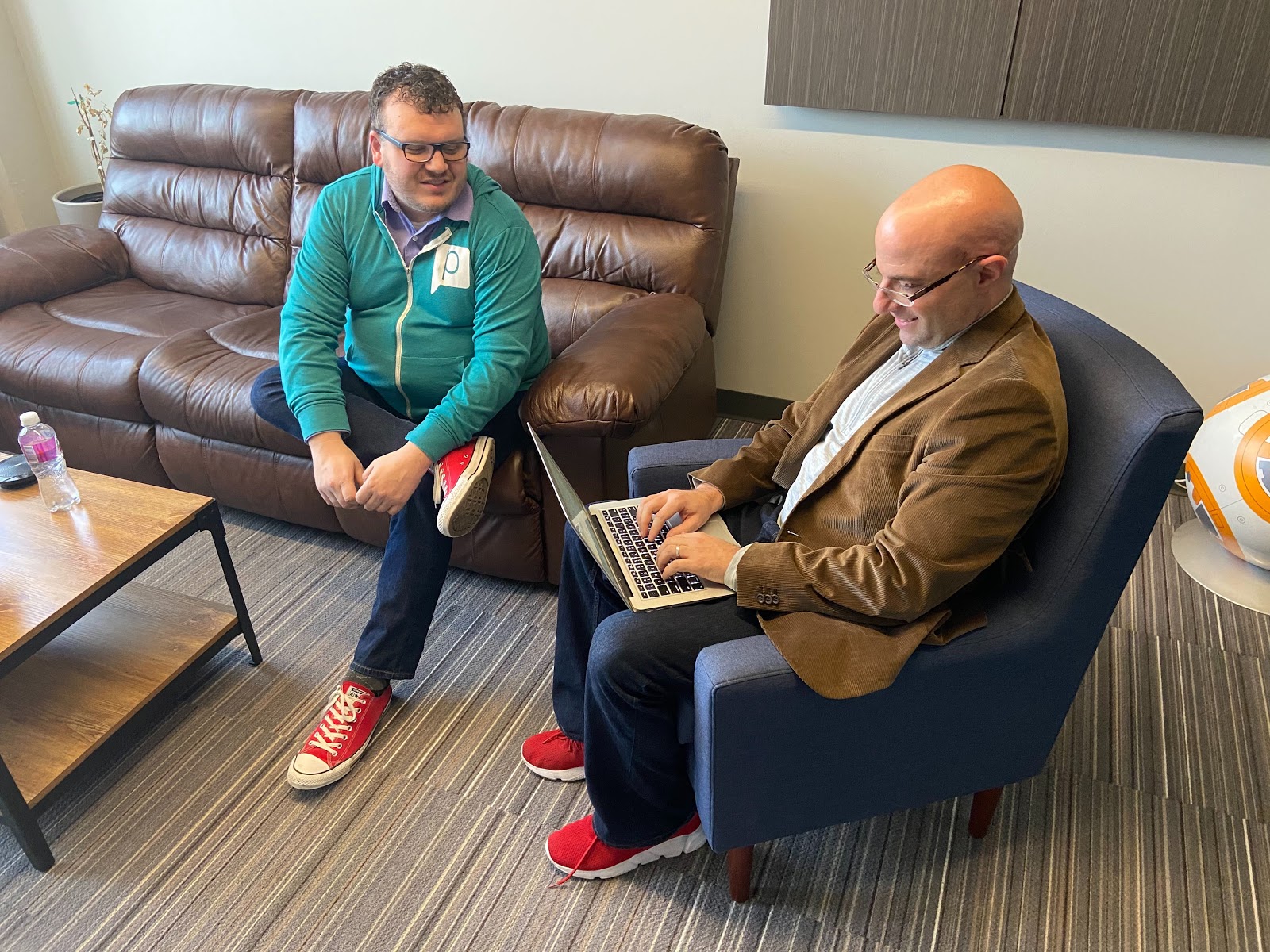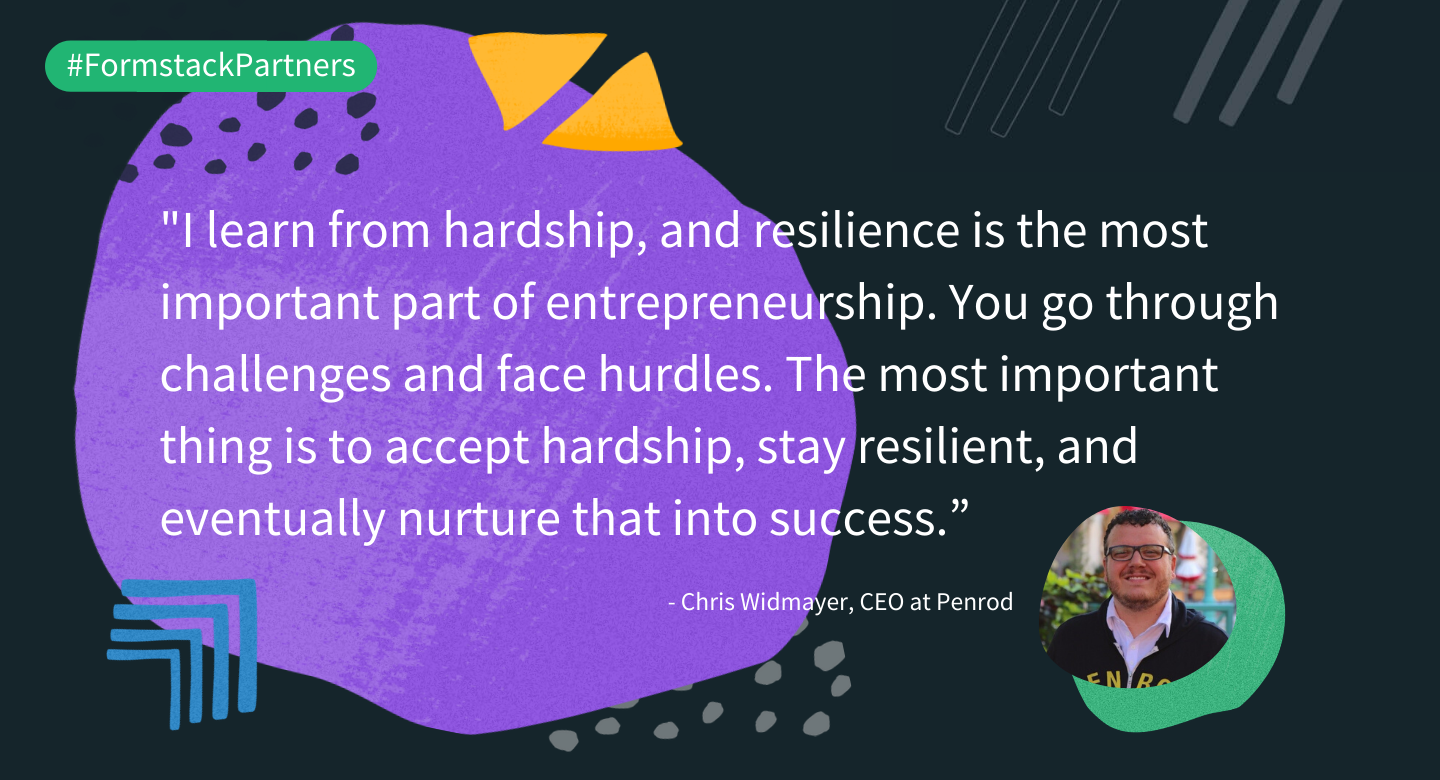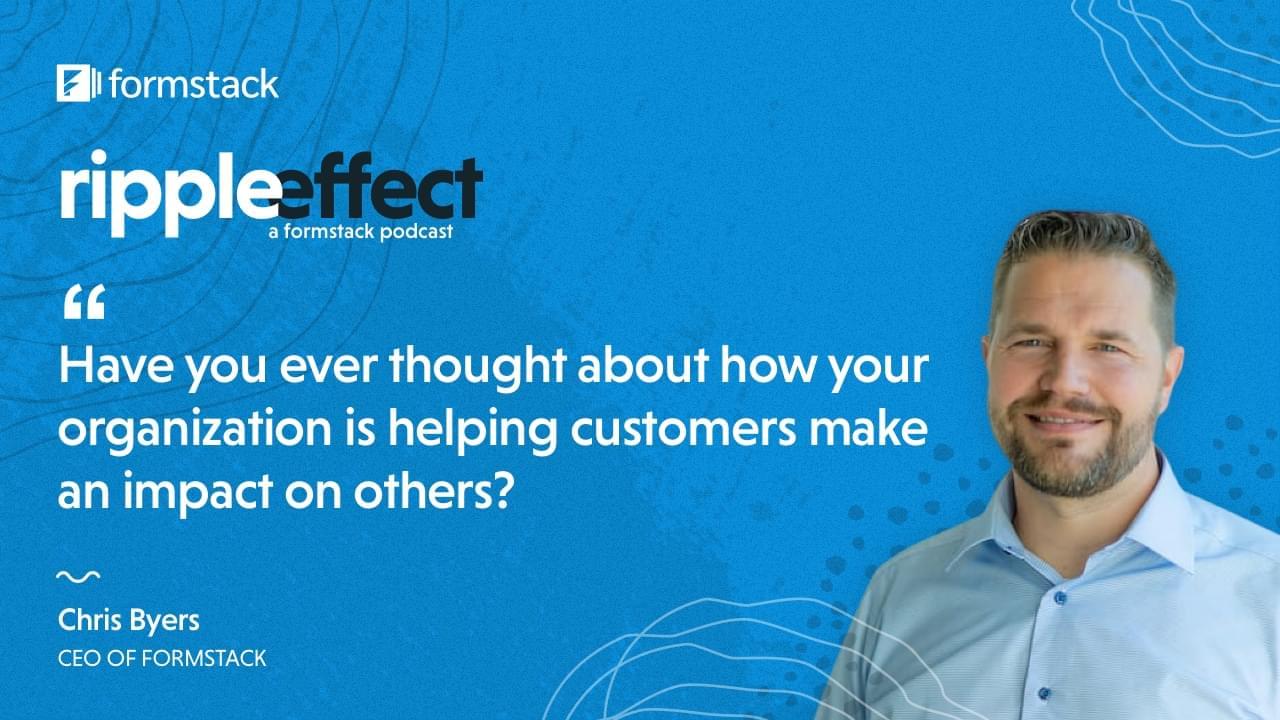Our VP of Partnerships Zak Pines recently sat down with Chris Widmayer, CEO of Penrod, as part of our ongoing Partner Interview Series. Zak and Chris chatted live at Penrodpalooza, Penrod’s biannual company meeting, and had a far-ranging conversation that touched on Penrod’s growth story, culture, and core values; the growth of Salesforce Health Cloud; and the company’s ripple effect. Here’s an abridged transcript of the chat.

Penrod’s Growth Story
Zak: We’re sitting here together at Penrodpalooza. I wore my red sneakers to be on brand with Penrod. So let’s start with that—who is Penrod?
Chris: Penrod is a consulting firm focused on digital transformation through the power of Salesforce. We seek long-term relationships, are rebellious, and shake up the status quo to help our clients differentiate themselves. We are not the typical consulting experience in the best possible way.
Zak: Can you tell me more about what you mean by that?
Chris: I used to be a consultant but didn’t enjoy the experience because I didn’t feel like an engaged stakeholder. I wanted to shake up the status quo. At Penrod, my goal remains to treat each client as if we are their employees. This helps us hold their success to the highest possible standard.
Zak: I like that phrase you said—shaking up the status quo. What does that mean to you?
Chris: We bring Penrod’s unique cultural flair to every client engagement. While we don’t operate like a typical corporation, we work well with corporations. Apart from successful implementations and clients, our goal is to get invited to their holiday party. That’s a material measure of success. You know you are part of that client’s community and culture when that happens.
Zak: You shared some slides earlier showing where Penrod was five years ago vs. today. Can you recap that? Your growth and expansion have been impressive.
Chris: Five years ago, we were ten gritty employees in one small office. Today, we have 65 employees, three offices, a new one planned in Portland, and we’ve made the Inc. 500 two years in a row. We were recently certified by Salesforce as a Healthcare & Life Sciences Master Navigator on the AppExchange. We’re an experienced field services partner. In fact, our IoT streaming demonstrations were featured at Dreamforce this year. It’s been a ride.
Zak: There must have been some key triggers to get you to where you are. What were those triggers?
Chris: There were three.
First, we won a large deal within the Salesforce ecosystem, and Salesforce leadership was watching us. We learned how Salesforce goes to market, and we identified more opportunities to co-sell. At that time, we were focused on other ecosystems in addition to Salesforce, but we weren’t seeing co-sell opportunities with those vendors. So we became Salesforce consultants.
The second significant trigger came in the form of a tough lesson. At one point, we thought diversification meant to take every project, regardless of industry. We went through some difficult times because of that. It became clear that we needed to become vertically focused experts. Starting in the middle of 2018, we became hyper-focused on healthcare & life sciences, and that paid off.
The third trigger was admitting we were consultants. We used to think of ourselves as a software company. We have since embraced being a services company, meaning that we have a “consulting first” mentality. We do not think of ourselves as only “a developer.” We solve tough client issues through consulting and business engineering to digitally transform their businesses. That was hard for me to admit because I’m an engineer.
Zak: Solving problems through consulting and business engineering—I love that. And admitting you were consultants—there’s a motto or bumper sticker in there somewhere.
You said something noteworthy in those triggers. You talked about hard times. You seem reflective on that topic. Can you share more?
Chris: I learn from hardship, and resilience is the most important part of entrepreneurship. You go through challenges and face hurdles. The most important thing is to accept hardship, stay resilient, and eventually nurture that into success.

That’s what distinguishes successful businesses from those that fail. Hardship is a learning experience, and the way you react to it defines your destiny.
The special part of Penrod is aligning that mentality to a proven process. If someone makes a mistake, I look at the situation and ask myself if there was malice involved. Ninety-nine times out of a hundred, there wasn’t. That allows us to look at the situation together in an objective, holistic way to determine root causes. It’s the best way to prevent it from happening again.
The key takeaway is that making mistakes is OK as long as you learn and grow from them. After all, growth is one of our core values.
Penrod’s Culture and Core Values
Zak: Core values—that’s a very Formstack phrase. Does Penrod have documented core values?
Chris: Yes. There are five.
Zak: I’m ready for them.
Chris: Number one is accountability because the subsequent values require it.
Secondly, grit. Penrod was built on grit. We do whatever it takes to get the job done.
Zak: I’ve seen that message on your website. “We’re Salesforce consultants, with grit.” What’s number three?
Chris: Flexibility. Processes are important, but they can create too much rigidity in the client relationship, and rigidity lacks authenticity. Flexible means bending, but not breaking. This echoes what I mentioned about pursuing authenticity by becoming a client’s employee and stakeholder. Sometimes successful implementations require us to be flexible, and true partners accommodate client needs to ensure their success.
Zak: What are the last two core values?
Chris: Teamwork. Penrod is a community. It’s not about “the delivery team” or “the revenue team.” It’s just “the team.” It’s about the entire company, together. Delivery and sales are tightly aligned at Penrod, which you don’t see in a lot of SIs.
The final core value is growth. You see it in our numbers. We want to grow. We’re not a lifestyle business. We’re not working with a lifestyle company as we partner with Salesforce.
We seek personal and professional growth, so we have a great maternity and paternity leave policy. Penrod wants to help its employees grow, whether that means starting a family or pursuing Salesforce certifications.
I don’t believe in work-life balance. I think it’s made up. I believe in work-life integration. There’s one thing—life. You have work, hobbies, relationships, and other things. We focus on how to integrate those to foster our complete, authentic selves.
Zak: As you’re talking, I’m seeing a lot of cultural alignment between Formstack and Penrod. Formstack is a remote-first company. We do have several offices, but the majority of employees are remote. How about Penrod?
Chris: We’re a hybrid. We have offices in Milwaukee, Minneapolis, and Dallas, and we have several remote employees. We’re also about to open a Portland office.
We fly the whole company to Milwaukee twice a year for Penrodpalooza. We’re big fans of Slack. Culture sponsors ensure that remote employees are engaged. In fact, one of our most popular programs called “Coffee Buddies” was an idea brought forward by a culture sponsor. We get paired up via a Slack app for a coffee and chat with remote employees over Google Hangouts.
Most importantly, we don’t force our culture. If you don’t want to participate, you don’t have to. We’ve discovered participation flourishes when people are allowed to opt-in.
The Ripple Effect
Zak: It was great to see Laura Kaiser from your team talk about the work she did with Project Adam at Wisconsin Children’s Hospital.
Chris: That was the best. Our people are the reason we are successful. We are nothing without our people, and Laura is a testament to that.
She did an awesome job presenting. I love it when I see use cases where our team made a positive impact on the community, like helping schools to save lives.
It points back to understanding that we are a consulting company. We’re a collection of smart people.
No person in the company is more important than the other. We all have a job to do, and we all make an impact.
Zak: It’s funny you say that because Formstack’s CEO Chris Byers has just launched a podcast with that very premise. It’s called Ripple Effect, and it’s about each person being able to think about the impact of what they do and the ripple effect of that impact.

Chris: The impact of the work you’re doing drives our passion. For instance, we built a system that tracks drug trials to cure rare genetic diseases. That’s powerful stuff, and we do it all the time in the healthcare space. These solutions impact lives. You’re right—it’s a ripple effect.
Zak: And even better, working collaboratively to have that impact.
Chris: Yes. True partners respect each other. We’re working in this special Salesforce ecosystem at a very special time. Who else gets to go to Dreamforce every year?
Salesforce is a community, and we’re all in this together. We cherish the partners we have and the important work we do together.
Zak: One hundred percent. We talk a lot about community in our partnerships. We are like Salesforce building a partner community.
Salesforce Health Cloud and Penrod’s Solutions Focus
Zak: You talked about your pivot to focus on healthcare two years ago. That aligned with Salesforce making a big investment in Salesforce Health Cloud, correct?
Chris: That’s right. Investing side-by-side with Salesforce has been an amazing ride. We sit on a partner advisory board, so that gives us an integral role and strong voice in the ecosystem.
Zak: Given your focus on healthcare, any philosophies you can share in terms of how you’re thinking about healthcare as you engage with your clients?
Chris: The patient is at the center of it all, and patient experience is everything. Likewise, experience is everything when it comes to millennials and Generation Z.
Zak: What are your key initiatives around healthcare?
Chris: We doubled down on medical device companies and payers last year, and we’re continuing to do that. Matt Fiel, our marketing director, shares Penrod’s thought leadership in this space through Salesforce case studies, blog posts, videos, and more.
We work with specialist clinicians like fertility, behavioral health, and compound pharmacies. We understand the go-to-market needs and pain points of these companies exceptionally well.
One of our key initiatives is building solutions within the vertical. We gather our collective experience over the last seven years and use it to create pre-built solutions that help clients go to market quickly. We can then offer our consulting experience to help them make the most of those solutions.
We’ve also added consumer packaged goods (CPG) as a new vertical. My background is CPG and retail, so it feels like home for me. I love marketing and the consumer-facing, branding-focused aspects. Whether a consumer brand sells directly or through retail, they need to be in control of the message, and we’re going to enable that better than anyone else.
Zak: Your concept of pre-built solutions resonates with me. That’s also something we look to do with consulting partners—help them create a verticalized offering that we can go to market together around with alignment across sales and marketing and delivery. What specifically are you working on in that area?
Chris: We’re working on a Quote-to-Card solution for insurance companies. Think about selling groups and government health insurance such as Medicaid. We want to provide a seamless process for how their sales teams work with brokers and partners. We’ll build modules around that, such as using Salesforce communities to create a broker portal. We’ll connect to backend claims like QNext and utilize tools like Formstack to build standard templates.
The great thing is we can deploy it in just eight weeks, as opposed to a year-long custom buildout. That resonates with our clients.
Zak: That’s a huge value to the client. They get speed to market and the standards and best practices while still getting customized.
Chris: That’s the power of Salesforce’s innovation. It’s also a result of best-in-class partners like Formstack and Bridge Connector. Salesforce can be the center of the engagement system and integrated to the electronic health record (EHR) system.
Lightning Round
Zak: Let’s close with the lightning round. What are some of your personal interests or hobbies?
Chris: I like music a lot. I play guitar. I like board games. I love animals; I have a dog and three cats. I like coding and building things. I still do development on the side when I can.
Zak: Do you have a favorite productivity tip you can share?
Chris: I’m big on to-do lists.
In terms of a productivity tip, make peace with the fact that you will never get everything done. Prioritize and be OK with that.
Zak: What’s your favorite TV show?
Chris: “Game of Thrones” is up there. But in terms of my GOAT, I’ll go with “The Wire.”
Zak: What’s your go-to lunch during the workday?
Chris: I miss lunch a lot. I love Friday lunches because we cater it from our favorite Milwaukee staples like FreshFin, Tusk, and Rice N Roll. We all eat together in the common area and have a great time. That sense of community is perfect as the week winds down.
Zak: And is a hot dog a sandwich?
Chris: Wow, you’re wrapping up on a divisive question! But no, absolutely not…that’s absurd.
Looking for your next step? Check out Formstack’s partner program for consultants, agencies, and tech partners.











